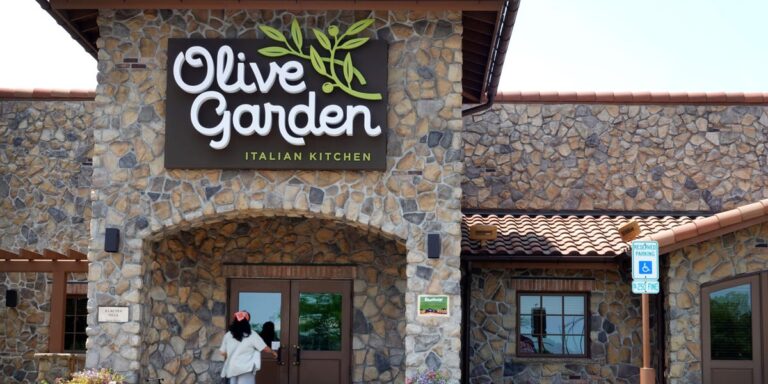Darden Restaurants says lower-income customers are visiting its brands less often.
The CEO of Darden, which owns a range of fast-casual and fine-dining chains including Olive Garden, LongHorn Steakhouse, and Cheddar’s Scratch Kitchen and recently acquired Ruth’s Chris Steak House, said that lower-income consumers “appear to be pulling back.”
“We’re clearly seeing consumer behavior shifts,” CEO Rick Cardenas said, speaking about the company’s third-quarter results on Thursday. “Transactions from incomes below $75,000 were much lower than last year. And at every brand, transactions fell from incomes below $50,000.”
Executives said that this was an “ongoing” shift and was most pronounced in its fine-dining segment. Cardenas had told investors in December that lower-income diners had been “splurging” in the fine-dining sector in recent years but that their orders were getting back to a more normal level.
“We’re essentially back to our normal pre-COVID mix across all income groups,” Cardenas said on Thursday.
Cardenas said that the operating environment in the quarter was “tougher than we anticipated.” Texas and California were particularly difficult, CFO Raj Vennam said.
But wealthier customers are dining out more often, Cardenas said. At LongHorn Steakhouse, for example, there was a rise in diners earning over $125,000 in the third quarter, and they were spending more per visit than previously, he said.
Speaking about check management — the industry term for diners cutting back on what they order — Vennam said that it was determined more by age rather than by income. Diners aged 65 and over were spending less each time they visited by ordering fewer add-ons with their meals and “shifting more to lunch,” he said.
Darden is cutting back on ‘deep discounting’ and heavy promotions
Cardenas noted that Darden’s price increases over the last four years were a “lot” lower than both the consumer price index and the industry average.
“So it gives us some room to continue to price if we need to,” he said. “But our plan is still over the long term to price below inflation.”
Cardenas said that Darden had largely stopped the “deep discounting,” couponing, and heavy promotional activity it offered pre-COVID to instead focus on marketing and building brand equity.
“It doesn’t mean that we won’t have price points on things over time, but that’s kind of more of our everyday low price or around that price,” Cardenas said. “We don’t plan on getting to be a promotional, deep-discounting brand.”
Across Darden’s brands, excluding Ruth’s Chris, same-restaurant sales in the quarter fell 1% year-over-year.
Same-restaurant sales at Olive Garden — its biggest brand, with more than 900 restaurants — were down 1.8% in the quarter year-over-year, which Vennam attributed to a 2% increase in average check size and a 3.8% drop in traffic. Olive Garden’s overall sales in the quarter grew by just 0.7% compared to the same quarter the previous year, which executives put down to a rise in its restaurant count.
Darden’s second-biggest brand, LongHorn Steakhouse, which has about 570 restaurants, saw a 2.3% jump in same-restaurant sales. Vennam said traffic was down about 2.5%, which would suggest that average check size grew by roughly 5%. Overall sales at the brand grew just over 5% compared to the same quarter the year before.


